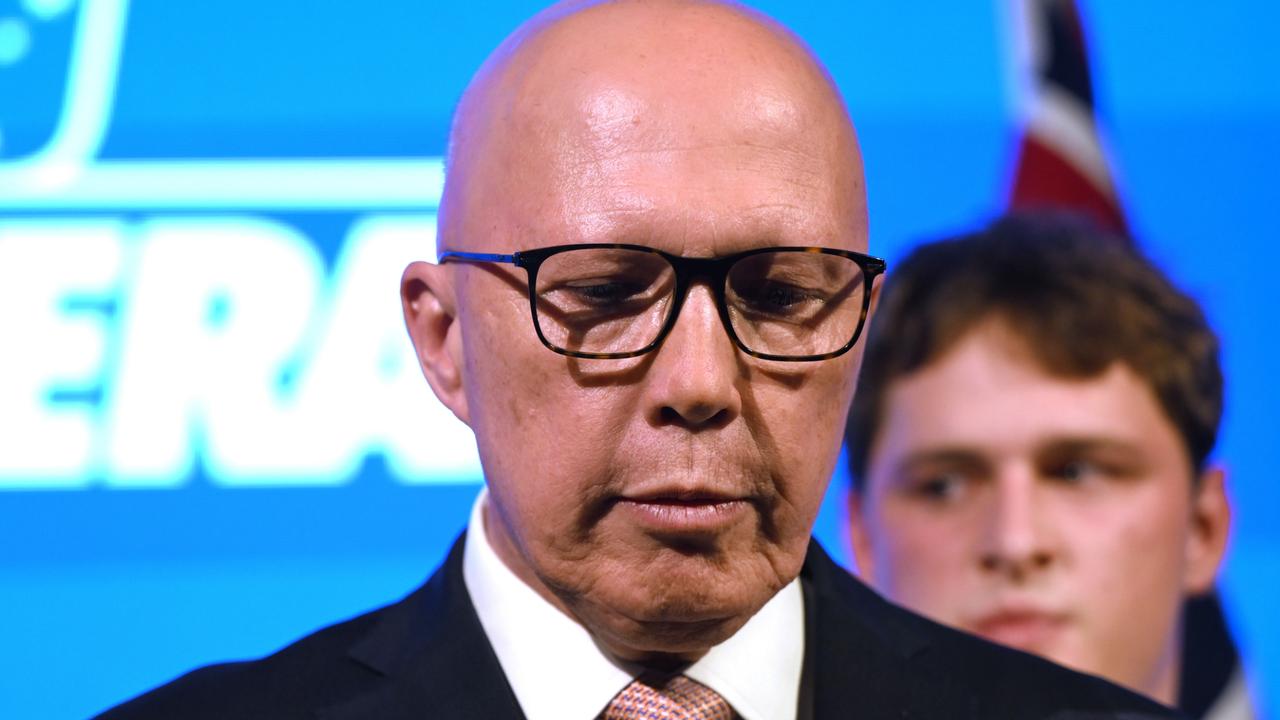The AFL’s match review panel is penalising players for unfortunate football accidents | Graham Cornes
The AFL’s match review panel is a damnation of a system that condemns footballers to suspensions when there is no malicious intent, writes Graham Cornes.
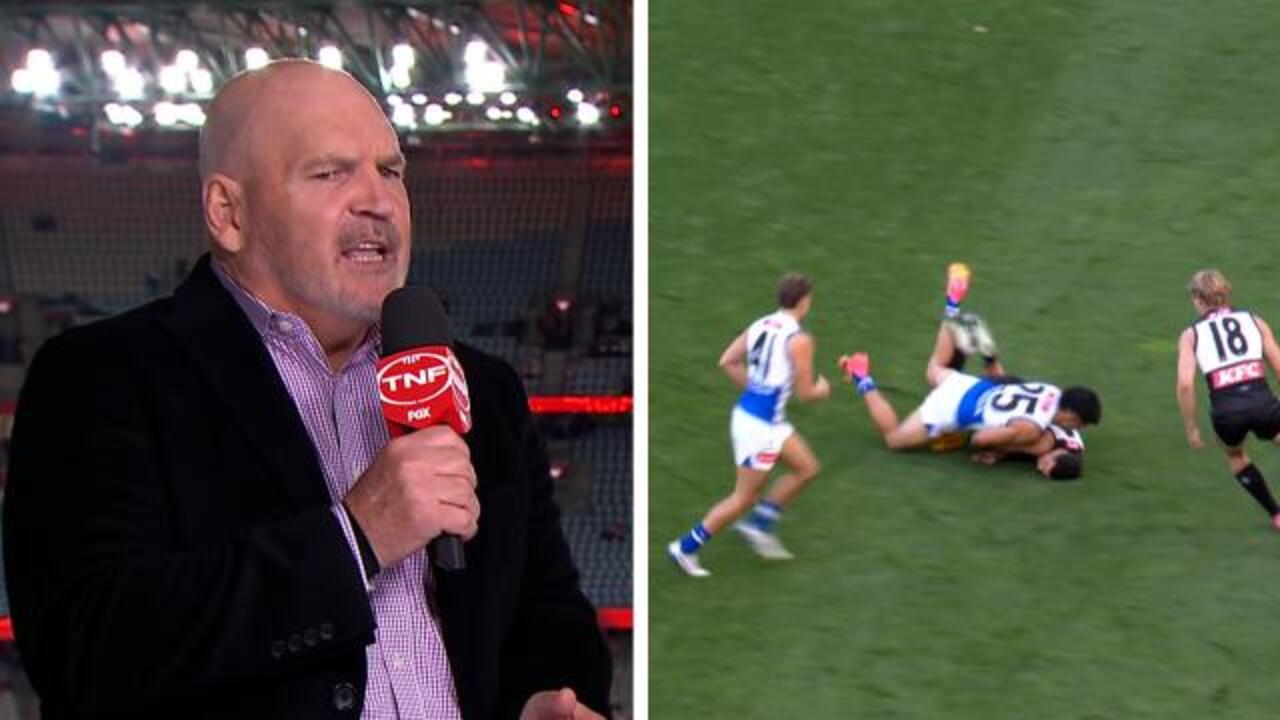
Opinion
Don't miss out on the headlines from Opinion. Followed categories will be added to My News.
I first saw Paul Curtis play in 2022. North Melbourne was in town to play the Crows at Adelaide Oval. It wasn’t a game for the ages – 14th versus 18th. The second-last game of the year, only 28,000 bothered to attend.
You couldn’t blame them for staying away. The season needed to end to put both teams out their miseries. However, it was a contest, with scores level at three-quarter-time.
But that was where the contest ended. The Crows dominated the last quarter and eventually won by 29 points. But there was this young player in North’s forward line who looked special – the sort of young player that has you reaching for the footy record to find out who he is and where he came from.
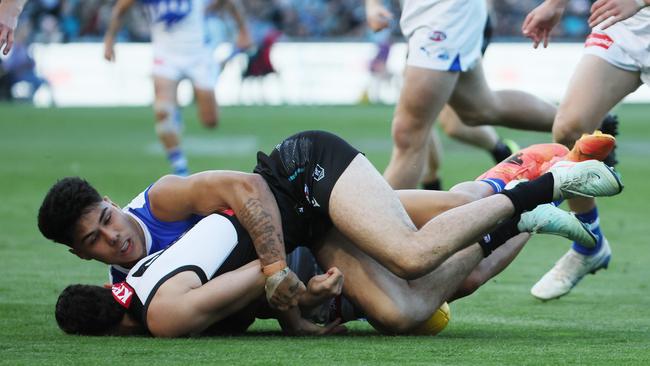
It’s the way they move, the balance and poise, and the power. He looked special, the sort of player you follow even though he doesn’t play for your team.
Indeed, he has the genes. Of Polynesian heritage, his mother represented Tonga in netball at the Commonwealth Games. He probably would have been taken higher than 35 in the 2021 national draft but he contracted Covid at the wrong time. But eventually that worked in the Kangaroos’ favour.
At North Melbourne they know. “Has serious talent and if he was playing at one of the bigger clubs he would be attracting more attention” reads Curtis’s player profile in this season’s AFL Record’s Season Guide.
Unfortunately Curtis has attracted plenty of attention in this last week. His tackle on Port’s Josh Sinn incurred the wrath of the AFL’s match review panel and then subsequently the AFL tribunal.
Under the ridiculous system of assessing on-field transgressions, it was assessed as careless conduct, high contact and severe impact. He was suspended for three matches for what anyone with half a football brain could see was an unfortunate football accident.
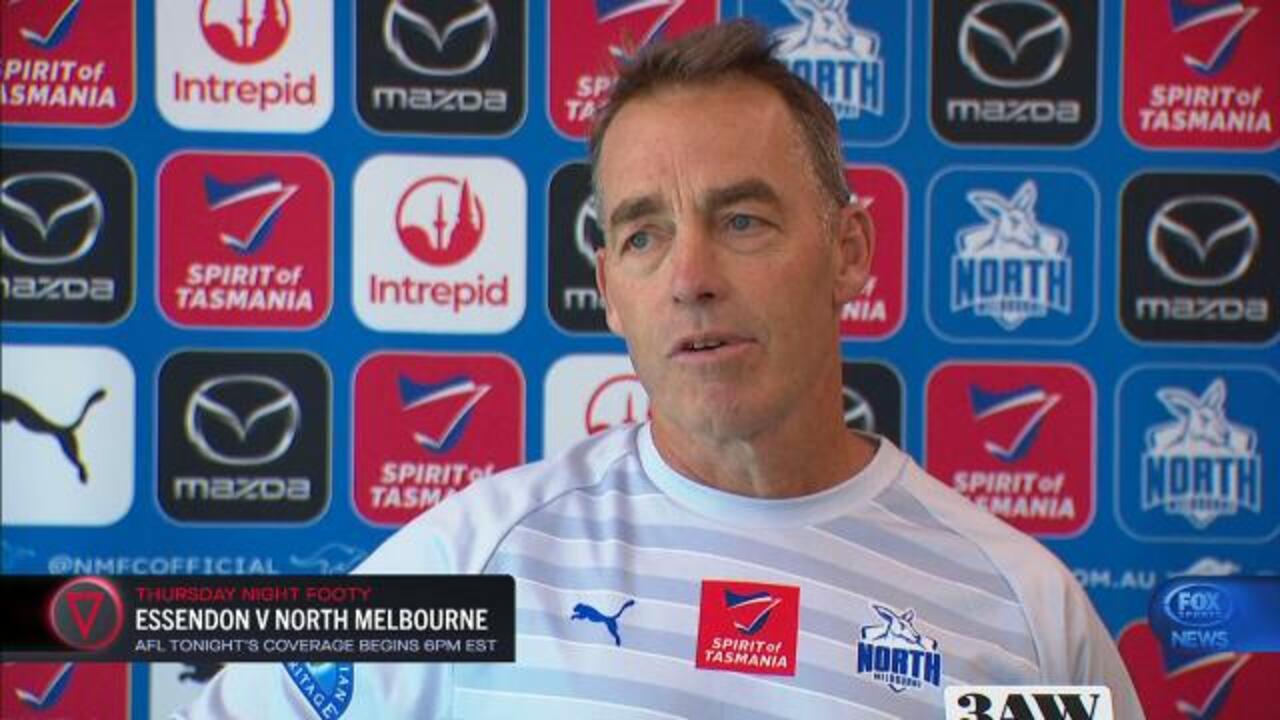
Curtis tackled Sinn from behind, the momentum carrying them both forward and even though Curtis attempted to roll Sinn to the side, the Power player’s head hit the ground and he was subbed off with concussion.
It is a damnation of a system that condemns footballers to suspensions when there is no malicious intent.
Sinn was subbed out after he failed the concussion protocol but Curtis is also the victim in this incident. Three weeks is a significant suspension, the sort of suspension that assails a footballer’s character and can derail his career, as well as impact his club’s performances.
Would he not have been handy in North’s three-point loss to Essendon on Thursday night?
Surprisingly North decided not to appeal the tribunal decision. Whether that was because of the cost, or the advice that there was little chance of having the ban overturned is incidental. The club needed to make a stand, if only to support their player.
However, given that Curtis is Melbourne-based, the wider football world has now taken up the case to highlight the unjustified severity of the ban.
Similar bans on non-Victorian players are often overlooked. Sam Powell-Pepper’s four match suspension for what was an unfortunate collision with Adelaide’s Mark Keane in a pre-season game last year is a classic example. But that’s another story.
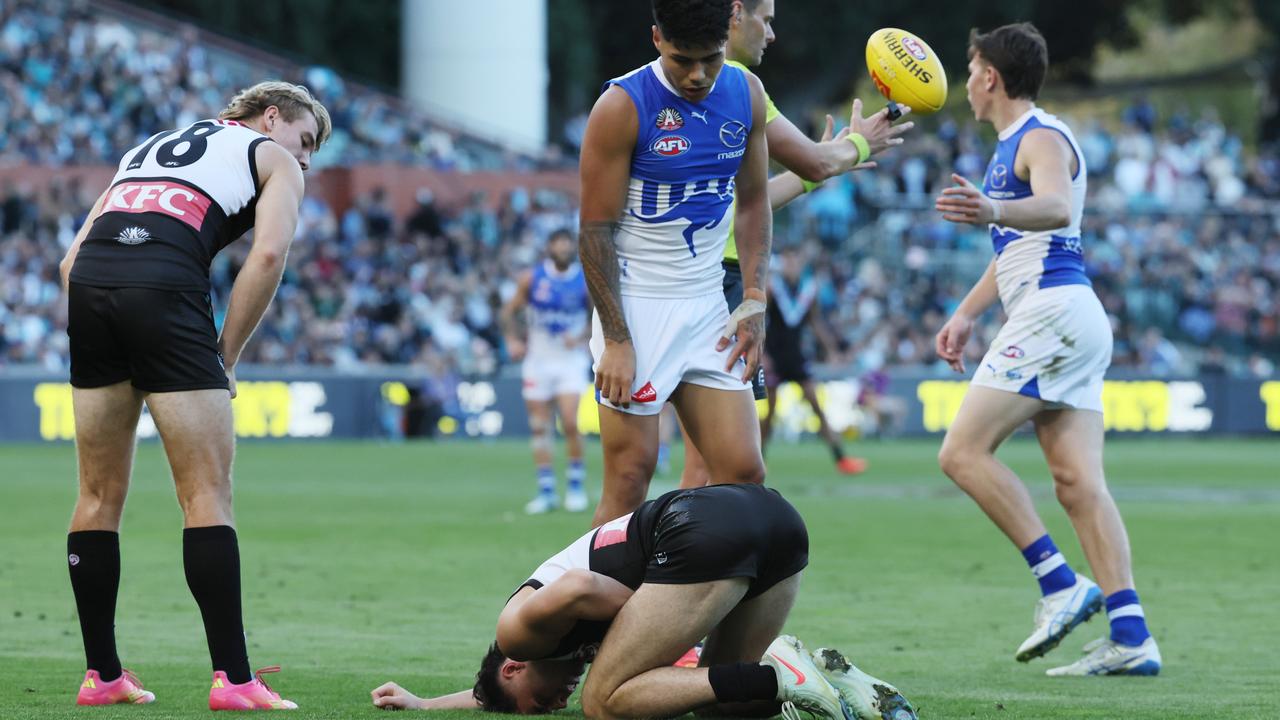
The football world has rallied behind Curtis and is calling for change. Even AFL football boss, Laura Kane hinted in a radio interview this week that the system has to be changed. Hallelujah!
One of those changes has to be the adversarial nature of the tribunal. It is as if a player is on trial for a serious criminal offence.
The chairman of the tribunal, Jeff Gleeson, once the AFL prosecutor who attacked each case with the zeal of a hardened criminal prosecutor, gives the impression of a notorious “hanging judge”.
The players can expect no leniency, even though two other members of the tribunal, Paul Williams and David Neitz are ex-players.
In Curtis’s case, AFL counsel Sally Flynn made the puzzling accusation that Curtis’s action was unreasonable given “it pinned Josh Sinn’s arms”. Of course he pinned his opponent’s arm. The intent of tackling is to prevent the opponent from disposing of the ball.
The other issue is how the match review officer assessed the contact and the impact (high and severe). Curtis did not make high contact with Sinn, nor was the initial impact severe.
The contact and impact was with ground which was an unfortunate football accident for which Curtis should not be punished.
There was no slinging action. As his coach Alastair Clarkson would say later: “he is the best tackler in the competition.”

But even though the three tribunal members deliberated for half an hour, the penalty could not be overturned.
There was once a time when a footballer could play his whole career without being reported or suspended. With only one umpire, players could get away with vicious, malicious acts.
It wasn’t as bad as rugby or rugby league but Aussie rules football could be a dangerous game to play. One can look back and wonder why there were not more serious injuries, why more players weren’t carried off.
Maybe they weren’t diagnosed. Wave the smelling salts under the nose of a player who had been knocked out and he was expected to get back into the fray.
Perhaps we were tougher and more resilient than the younger generations but we endured the high hits and the behind-the-play assaults with stoic indifference. Of course it had to change but like most reforms the pendulum has swung too far.
The timeline of VFL/AFL report and tribunal verdicts tells the story. In 1964 there were a total of 16 players reported and only eight found guilty. In 1984 it jumped to 100 reported but only 57 were found guilty. In 2004 173 players were reported with 133 found guilty.
Last year (2024) a staggering 330 charges were laid, 318 resulting in a guilty verdict. The big difference is fines. In 1964 there were no fines. Last year the sanctioned players were fined a total of $568,750!
The current system is too draconian, adversarial and inflexible. Paul Curtis does not deserve to be sidelined for three weeks.
Last year, Essendon’s Peter Wright did not deserve to be suspended for four weeks when, in contesting a mark, he collided with Sydney’s Harry Cunningham. There are endless examples of football injustice.
The wider football world may not yet have fully appreciated the football ability of Paul Curtis who was on track for all-Australian selection this year, but if he is the catalyst for AFL tribunal reform he will have definitely left his legacy.





